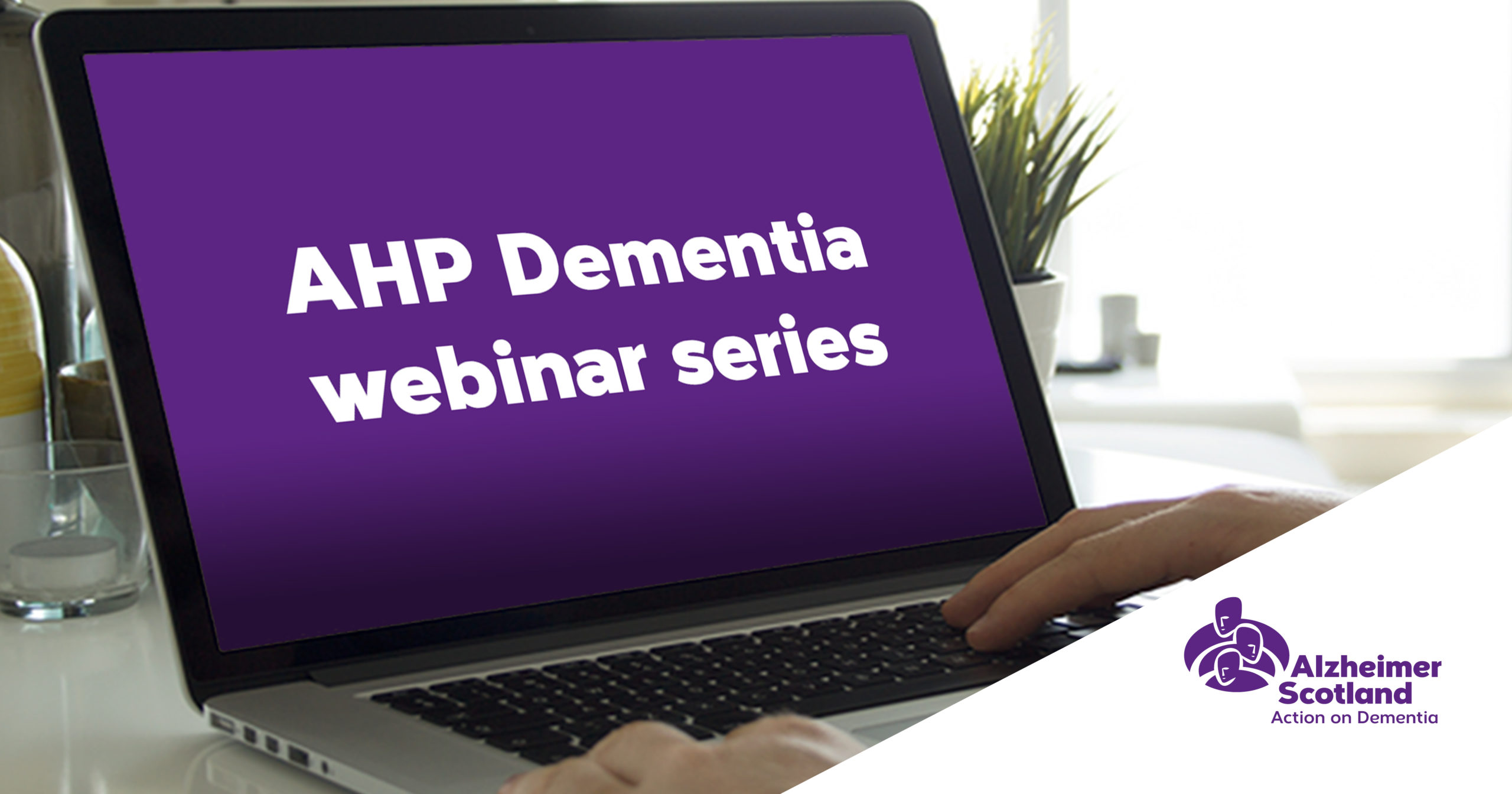[ad_1]
AHP webinars are always informative and helpful.
Great presentation – lots of information, very good pace and style of delivery!
It was very interesting to hear more about the role of paramedics
Every two months we work together as an allied health professionals community to develop, for you, a national AHP Dementia Webinar where we share the work and practice of allied health professionals in Scotland. Our vision for the webinars is “through working in partnership, we can all improve outcomes for people that really matter”. Our AHP Dementia webinar in May 2023 was called “Taking care to the patient” with guest presenters Billy Ridler, Dementia Lead Scottish Ambulance Service and Vicky Burnham, Head of Education (West) Scottish Ambulance Service.
WATCH AGAIN. The webinar link is here
During the webinar, participants asked lots of great questions and today we are posting the replies from our webinar hosts. Please leave any further comments on this blog post for Billy or Vicky to continue the conversation with you at the end of this blog or email us at AHPDementia@alzscot.org
Question: Are there plans to develop Paramedic student placements within care homes or other dementia settings? As a care home we have some at present but this seems to be a more general communication, short placement
Answer
My understanding is that the universities who provide paramedicine education in Scotland have practice education models that mix ambulance based placements, with other placements across health and social care including care homes to support a diverse range of experience and to aid the students in meeting their practice based competencies/learning. I am unsure about the length of these placements but the team and I are inputting into the theory aspects of the courses and can enquire about how practice education models are aiding students in developing the skills, knowledge and experience to support people living with dementia and their families/carers.
Question: Has the Redesign of Urgent Care changed the role of SAS/ paramedics? If so, how?
Answer
Yes, I think aspects of practice for SAS and paramedics in Scotland has changed as a result of the redesign of urgent care, for example, a more diverse range of treatment pathways have been developed to enable professional to professional decision-making support via flow navigation teams within territorial boards. The aim being to connect the person being supported by SAS with the most appropriate onward care (i.e., assessment at home by a hospital at home team, or urgent community treatment team) in a timely manner and enabling non-conveyance to accident and emergency departments where appropriate and safe to do so.
Question: Is there anywhere to find about local initiatives with health board areas.
Answer
SAS is divided into three regions – North, East, and West and a series of sub-regions within these and they work closely with the territorial boards, health and social care partnerships and communities within these regions. I wonder if a good place to find out about local initiatives may be via twitter, or other social media feeds, from the organisations or accessing the appropriate webpages to see meeting minutes, plans etc. I would be happy to connect individuals/groups with local leaderships teams if a particular geographical area is of interest.
Question: What universities in Scotland offer paramedical training and how long is the course?
Answer
The providers of paramedic education, at pre-registration, level in Scotland, are;
The degree course is three years, full-time, with successful graduates completing a HCPC approved BSc in Paramedic Science/Practice.
Question: How can I get involved or contribute to your SAS dementia policy?
Answer
We would love to work with a broad range of individuals, and groups, during the development of our dementia strategy. We are currently putting together stakeholder groups/distribution networks, please email sas.dementia@nhs.scot if you wish to be involved. Thank you!
We invite you all at the end of each webinar “Something you will take away from today’s webinar and use in your practice, or life, going forward”. Here is a selection of some of your replies. We wish you every success in following up your ideas and inspirations that you shared with us.
Development of dementia friendly ambulance is a health care positive to hold onto as I continue to work with patients with dementia in hospital. As an occupational therapist, many patients even with dementia tell me about their journey into hospital.
Taking opportunities to collaborate with paramedic services on dementia friendly developments, especially in relation to communication and ways of storing/sharing personal information in advance that could make the response to an emergency situation more person centred
Have more knowledge in understanding SAS services
The different roles of the Paramedics
I am going to email my colleagues with some information gained from today. I had no idea the amount of input ambulance service staff can have outwith responding the life threatening/emergency situations.
I didn’t know paramedics were now working in places such as GP surgeries, I always thought of paramedics as ambulance workers/first response so I will think of them differently now.
Some of the simplest ideas are the best. Dementia friendly ambulances for example. Also use of other tools that are being implemented in other areas such as getting to know me and life history works.
Stay connected
We tweet daily @AHPDementia
We blog weekly www.alzscot.org/talking_dementia
We use #AHPConnectingPeople & #AHPScot as our hash tags
We support our AHP students to share their learning on AHPDementia Instagram
We share AHP evidence based self-management resources at www.alzscot.org/ahpresources
We have an email for youto send questions AHPDementia@alzscot.org
We developed an interactive website with 32 resources for you www.connectingpeopleconnectingsupport.online
[ad_2]
Source_link

